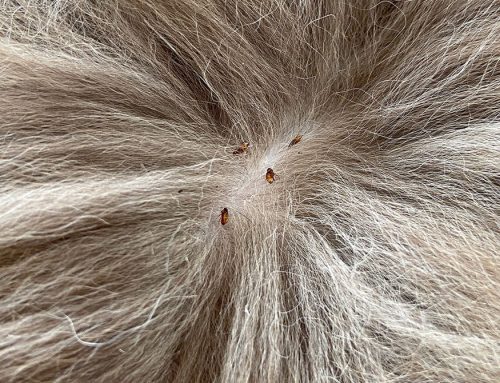Dogs and cats are not just pets – they are treated like members of the family. And like any member of your family, it’s important to keep your companion animal healthy and free of parasites.
It is fairly common for a dog or cat to become infected with an internal or external parasite at some point in its lifetime. Parasites can affect your pet in a variety of ways ranging from simple irritation to causing life-threatening conditions if left untreated. Some parasites can even infect and transmit diseases to you and your family.
You can reduce the risk of parasitic infection to your family by:
- Eliminating parasites from pets
- Restricting access to contaminated areas such as sandboxes, pet “walk areas”, and other high-traffic areas.
- Practicing good personal hygiene.
What is a zoonotic disease?
Zoonoses, or zoonotic diseases, are those diseases that can be transmitted directly or indirectly from animals to humans. For example, some worms can contaminate the soil where they serve as a risk to people as well as animals.
Parasites that may affect your pet include the following:
- Heartworms
- Roundworms
- Hookworms
- Whipworms
- Fleas
- Mites
- Ticks
- Toxoplasma Gondii
- Tapeworms
- Coccidia
- Giardia
- Heartworms
- Roundworms
- Hookworms
- Whipworms
- Fleas
- Mites
- Ticks
- Toxoplasma Gondii
- Tapeworms
- Coccidia
- Giardia
Tips to protect your family and your pet:
- Wash your hands well after any exposure to soil (gardening), sandboxes, and raw meat.
- Eat only well-cooked meat.
- Wash fresh fruits and vegetables to eliminate contamination.
- Be certain to wash hands well after changing litter boxes.
- Supervise infants sitting on the ground or on the floor. Do not allow them to eat dirt or food that has fallen on the floor or ground.
- Pick up dog and cat feces from the yard daily.
- Cover sandboxes and play areas to prevent wildlife and strays from contaminating these areas.
- Take your pet to the veterinarian regularly and have your pet tested for parasites once yearly.
- Deworm your cat or dog according to your veterinarian’s recommendations.
- Administer year-round products as directed by your veterinarian to control parasites.
Year-Round Prevention
Parasites can infect your pet any time of the year. External parasites, such as fleas and ticks, may be less prevalent outside during certain times of the year. However, they often survive in the house during the winter months, creating an uninterrupted life cycle. Other internal parasites, such as intestinal parasites (worms), may affect you pet all year long. That is why it is important to consult with your veterinarian to implement a year-round parasite control program.








Leave A Comment